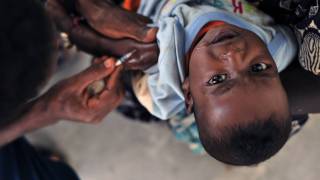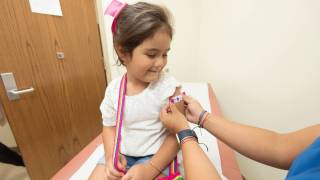No Sales Surge Seen in Measles Vaccines During 2019

The only Food and Drug Administration (FDA) approved producer of measles vaccines said in a press release on May 1, 2019, that an ‘increase consumer demand was noticeable, but did not amount to a surge.’
Merck & Co. produces the Measles-Mumps-Rubella vaccine called MMR II and Proquad, which includes the varicella prevention ingredient.
Merck said that USA sales of its measles and chickenpox vaccines rose around 10 percent in the 1st quarter of 2019.
And, much of this increase came from vaccine sales to private clinics, which pay more than government programs, rather than an increase in the volume of vaccines sold.
Further, Merck did not report a significant uptick of purchases from the Centers for Disease Control and Prevention (CDC), which is a large supplier of measles vaccines to the pediatric population through its ‘Vaccines for Children’ program.
Additionally, Merck said ‘this demand has not required a significant increase in vaccine distribution across the USA.’
This Merck comment in its Wall Street statement indicates that measles vaccinations in the USA have not increased, despite a significant increase in confirmed measles cases during 2019.
As of April 26, 2019, various states have reported 702 measles cases during 2019.
The vast majority of measles cases have occurred in Jewish children living in New York who have not received the measles vaccine.
And, most of these measles cases can be traced to the worldwide measles outbreak.
According to the CDC, returning international travelers are one of the key sources of the measles virus in the USA.
“Despite what we’ve seen as a huge uptick in the number of cases ... the demand side of the equation hasn’t been outstripping our underlying vaccine production capacity,” said Merck’s Chief Marketing Officer Mike Nally.
Measles is a highly contagious virus that lives in the nose and throat mucus of an infected person. It can spread to others through coughing and sneezing. Also, measles virus can live for up to two hours in an airspace where the infected person coughed or sneezed.
Measles is so contagious that if one person has it, up to 90 percent of the people close to that person who are not immune will also become infected, says the CDC.
Infected people can spread measles to others from four days before through 4 days after the rash appears.
Measles was declared eliminated (absence of continuous disease transmission for greater than 12 months) from the United States in 2000.
Recent measles news:
- Cruise Ship Freewinds Quarantined With Measles Onboard
- Over 62 Years Old? A Measles Vaccine Booster May Not Be Needed
Relevant Links: CDC vaccination schedules, CDC vaccine price list, international travel alerts, and report vaccine side effects.
Our Trust Standards: Medical Advisory Committee

























